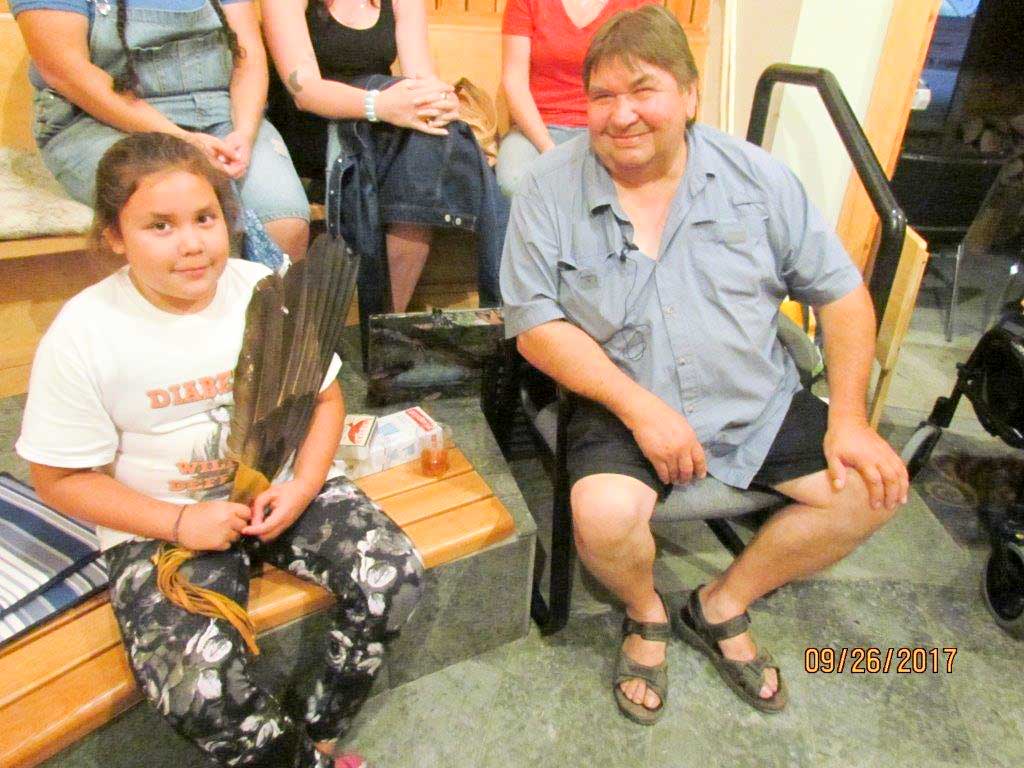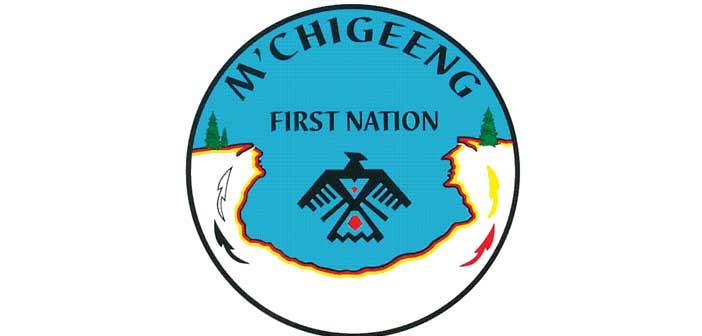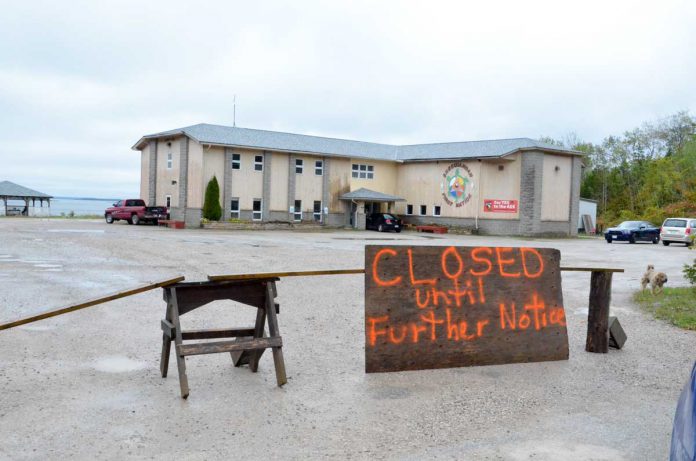M’CHIGEENG—The Anishinaabe interpretation of the four stages of life was the focus of a September 26 presentation at the Ojibwe Cultural Foundation (OCF) in M’Chigeeng.
Elder Josh Eshkawkogan of the Thunderbird clan and Keeper of the Medicines was the guest speaker and the topic was ‘the four stages of life.’ The event was held in the healing room at the OCF complete with fire and tobacco for people to put on it to honour not only the teaching, but also the fire.
Mr. Eshkawkogan began his talk by saying the topic was about life itself, the four hills of life and how we came to be who we are.
“The first stage was very enjoyable,” Mr. Eshkawkogan said, “the first contact of our parents. We have so much joy in our mother’s womb. In the early days, a woman who was carrying was treated very well and she was very active. And our first contact was at nine months and the most important thing was love.”
“The first six months,” Mr. Eshkawkogan went on to say, “is reaction to noise. The parents keep the children to themselves. That stage is very important and can be difficult for some children. And the first two years are very important for the family to be close to the child. The first two years are about learning and showing the child how much they are loved and we have to understand our responsibilities. There are a lot of single moms and fathers so the constraints are already there. The child has to have a sense of identity.” To this end, there is a naming ceremony for children and the name is based on what was happening the day they were born. Perhaps it rained or the elder doing the naming was near a lake or river and such. Many times the young boys would receive names of animals and plants. The naming ceremony also makes sure that the Great Spirit will recognize the person when they pass on. It is very important that the child understands the purpose of this rite.”
This stage of life means there is a lot of care needed. “This is where the uncles and aunties come in,” Mr. Eshkawkogan explained. “To connect with the child with respect. It is very important for the extended family to give that respect to the child. It is all about teachings so the child understands. It is very important at this first hill to tell children they are loved.”
Mr. Eshkawkogan then moved on to stage two in a person’s life, saying that there are challenges to what is in front of the children. “They are moving into a different type of school and we have to be very cautious about the environment the child is entering,” he noted. “There is alcohol and drug abuse at this stage. Things have drastically changed. We have to be like a deer, always looking and knowing what is going on around them. There are more people falling down at this second hill. We have to teach our young men and women about responsibility. We have to go back in our teachings about respect and honour. Young women have to have respect for themselves. We need more dialogue. Kids need to understand that they have people they can talk to. We have a lot of confused kids. Sixteen-year-old fathers and fourteen-year-old pregnant girls. You have to be very conscious of what is going on in those children’s mind.”
The third hill or stage in life is adulthood and Mr. Eshkawkogan started by saying that there is too much free will at this point and people don’t know what is right or wrong. This part of life, from age 18 to 45 is the most difficult as there are so many temptations and disconnections. “It is very important to know how to meet the challenges. For example, the Missing and Murdered Women. There is some reason why they left home, why they left the community. And at age 25 there are still some people living with their parents, there are drugs and alcohol and a lack of motivation. Things are changing so fast we have to know how to adapt. There are young people today who don’t know where they are going. Some adults may take a longer time than others to figure out what they want to do and will try different careers. It is very important for those in adulthood to gather all they can about life. What is life? What is it all about?”
The fourth hill is not as steep as the first hill. This is a time for a person to learn about his culture and if a teaching doesn’t work for you to pass on it. Mr. Eshkawkogan then asked the question, “how do you become an elder? I only perceive myself as a teacher. It is how they perceive me in what I do. For a person in hardship, it is good to know that there is someone to go to for advice, for help. I always make sure that someone is there to help them. And the Truth and Reconciliation Commission. We don’t even know what we should be called? Anishinabek? First Nation? Indigenous? How do we move forward? Colonialism and dictatorship. We have to look beyond that. We need to have an open mind. We can talk about reconciliation but we have to move forward. With the prayer, ‘Help me to let go of those things I don’t need.’ And don’t wait to be asked to do something. Just do it.”
Mr. Eshkawkogan is one of many speakers at the OCF every Tuesday. Upcoming events, starting October 3 include women’s bundle teachings, a Sisters in Spirit gathering and men’s bundle teachings. Workshops at the OCF include beaded Pride rings, leather roses, introduction to clay, moccasin making, quill wrapping and gauntlet making.
For more information call 705-377-4902.





